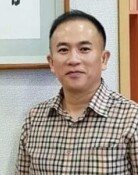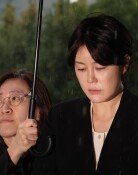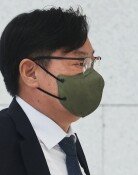Advanced learning ban shouldn`t curb talented students intellectual stimulus
Advanced learning ban shouldn`t curb talented students intellectual stimulus
Posted May. 01, 2013 07:47,
A special bill on accelerated normalization of public education, which bans advanced learning in all three phases of not only entrance tests and curriculum for elementary, middle and high schools but also college entrance test, has been put on table for discussion at parliament. The ban on advanced learning is a centerpiece of President Park Geun-hyes election pledges in education, and is based on the recognition that advanced learning at private academy devastates public education. Rep. Kang Eun-hee of the ruling Saenuri Party spearheaded the drafting of the bill, but it reflects commitment of the president and the Education Ministry, heralding looming controversy at the National Assembly.
Of the bill, the provision that requires schools to thoroughly follow the principle of setting exam questions within school curricula in tests for elementary, middle and high school admissions effectively targets special purpose schools. International middle schools and special purpose high schools require that students have academic capacity meeting the objective of their establishment, and thus entail the need for advanced learning. If forcing schools to set exam questions within school curricula without giving consideration to special purpose schools will effectively nullify the reason dêtre of special purpose schools. If not only foreign language schools requiring outstanding foreign language skills but also gifted students high schools and science high schools, which operate university level curricula and must compete with global human resources, are forced to set examine questions within the scope of middle school curricula, the schools will have difficulties recruiting talented students.
The provision that bans schools from setting exam questions going beyond the boundary and level of education curricula in all tests, including written tests, academic performance tests and in-school academic contests in elementary, middle and high school programs is a system that is currently implemented. The issue of controversy is learning to what extent and level prior to school curricula should be regarded as advanced learning. It is difficult to judge if applied problems that are set based on textbooks should be considered questions of advanced learning or questions of in-depth learning.
It is a dangerous idea to ban setting questions that go beyond the boundary and levels of high school curricula in all college admissions tests, including essay writing, interviews, and practice tests. Interfering with test questions constitutes infringement of colleges right to their autonomy. In light of the trend of setting interdisciplinary problems integrating different subjects, it is difficult to determine to what extent of test problems can be considered to be within scope of high school curricula. The governments plan to halt financial assistance and reduce student quotas to schools violating this principle constitutes abuse of administrative authority.
It is regrettable that students learn curricular subjects at private academies and take a nap at school class. A public survey suggested that as many as 71 percent of parents support a ban on advanced learning. But advanced learning is characterized by the nature that it cannot be determined as such based on just one aspect. It has such negative aspects as causing private education, adding to financial burden on households and devastating public education, but it provides intellectual stimulus to gifted students and helps contribute to education of excellence. More than anything, no country in the world except Korea would penalize students for learning school curricula in advance. It should also be kept in mind that however good education policy is, it would be hardly generate good effect unless parents change their value.
Headline News
- N. Korea redefines S. Korea as ‘hostile state’ in revised constitution
- Samsung develops graphic DRAM with industry-leading capacity and speed
- Three questions allegedly leaked via text message during Yonsei Univ. essay test
- China to inject 340 trillion won in loans to support real estate sector
- Dodgers beat Mets to take 2-1 lead in NLCS







